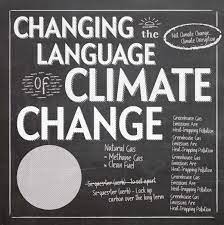A group of Nigerian civil society organisations (CSOs) who participated at the 28th Session of the Conference of the Parties (COP28) to the United Nations Framework Convention on Climate Change (UNFCCC), has said: “we need more than words to fight climate change.”
The group expressed cautious optimism over the outcome of the global summit.
COP28 ended with the adoption of “The UAE Consensus” and a commitment to transition away from fossil fuels to achieve net zero.
Director, Society for Planet and Prosperity (SPP), Prof Chukwumerije Okereke, stressing that celebrations that greeted some of the resolutions were misplaced.
He said: “The wild celebration of the inclusion of ‘transitioning away from fossil fuel’ in COP28 text is largely misplaced. While symbolical, it is political economy and NOT COP texts that will shape the action of states and companies.
The SPP, along with the Centre for 21st Century Issues (C21st Issues) and EnviroNews Development Network (Endenet), is collaborating to execute a British High Commission (BHC) supported project that mobilised Nigerian CSOs at COP28, in partnership with the Nigeria Climate Justice Alliance (NCJA).
Titled: “COP28: Strengthening Nigeria’s Civil Society Organisations’ Engagement with Global Climate Change Policy”, the project is aimed at improving the communication, lobbying and advocacy competencies of climate CSOs to ensure a more active participation at the global summit.
In her assessment of COP28, Titilope Akosa, Executive Director of C21st Issues, said: “The decisions made at COP28 have emphasised the importance of focusing on just transition pathways that align with the temperature goal set in the Paris Agreement. This is particularly crucial for developing countries, as we need to carefully plan and execute our just transition journeys to promote human flourishing and the well-being of our citizens.
“It is imperative that we advocate for grants-based and gender-responsive climate finance to support the phase-out of fossil fuels and the widespread adoption of renewable energy, with the aim of tripling its use. It is high time for developed countries to fulfill their climate debt obligations, as this is essential for ensuring a just transition that benefits both people and the planet. A transition burdened by debt would not align with principles of climate justice and would undoubtedly cause significant harm to our communities.”
Nigeria Conservation Foundation (NCF), Dr Joseph Onoja , which is coordinating the NCJA, said: “Reflecting on the much-anticipated COP28, the outcome could be better as it is not as ambitious as we expected it to be. Although fossil fuels phase out was not agreed, but parties have now recognised that it is that will be done eventually. We will, however, continue to push for nature to be at heart of solution to the climate crisis. Nature for people, for climate and for prosperity.
“As for the flow of finance for nature, we were hoping to see a more rigorous approach and that such should reach indigenous peoples who are more affected by the climate crisis. The recognition of nature is expanding and the need to have nature in the cities is being recognised globally. That is why we are resisting the wanton destruction of forest in Ibadan by the Oyo State Government.”
Sam Onuigbo of the Climate Axis and Strategic Initiative: “COP28, in my humble view, was a success. This was the first time the whole world, in a near unanimous position, agreed to commence necessary actions to limit rise in temperature to 1.5 degrees Celsius above preindustrial era by transiting from fossil fuels. The first positive sign of steady progress was the operationalisation of the Loss and Damage Fund from day one of COP28. On a continental level, Africa recorded gains on the Global Goal on Adaptation, Climate Health, tripling renewable energy and many pledges that are in Africa’s favour.




